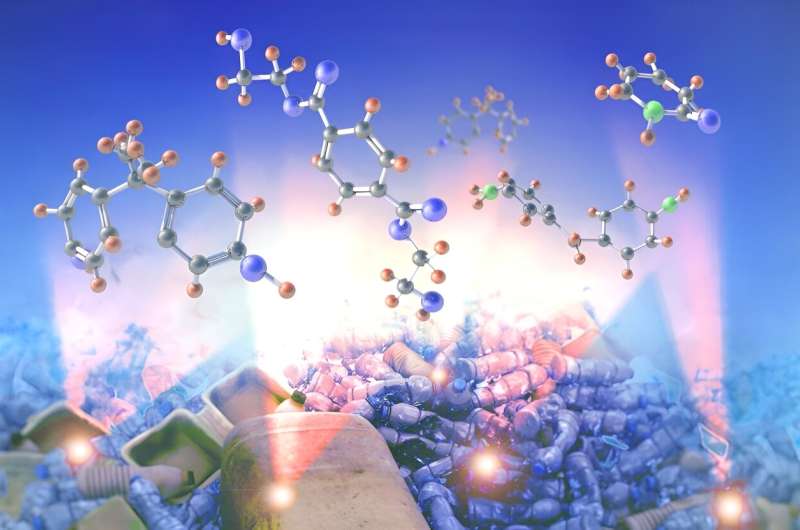This article has been reviewed according to Science X's editorial process and policies. Editors have highlighted the following attributes while ensuring the content's credibility:
fact-checked
peer-reviewed publication
trusted source
proofread
Turning mixed plastic into useful chemicals

Almost 80% of plastic in the waste stream ends up in landfills or accumulates in the environment. Oak Ridge National Laboratory scientists have developed a technology that converts a conventionally unrecyclable mixture of plastic waste into useful chemicals, presenting a new strategy in the tool kit to combat global plastic waste.
The paper is published in the journal Materials Horizons.
The technology, invented by ORNL's Tomonori Saito and former postdoctoral researcher Md Arifuzzaman, uses an exceptionally efficient organocatalyst that allows selective deconstruction of various plastics, including a mixture of diverse consumer plastics. Arifuzzaman, now with Re-Du, is a current Innovation Crossroads fellow.
Production of chemicals from plastic waste requires less energy and releases fewer greenhouse gases than conventional petroleum-based production. Such a pathway provides a critical step toward a net-zero society, the scientists said.
"This concept offers highly efficient and low-carbon chemical recycling of plastics and presents a promising strategy toward establishing closed-loop circularity of plastics," said Saito, corresponding author of the study.
More information: Md Arifuzzaman et al, Selective deconstruction of mixed plastics by a tailored organocatalyst, Materials Horizons (2023). DOI: 10.1039/D3MH00801K
Journal information: Materials Horizons
Provided by Oak Ridge National Laboratory





















